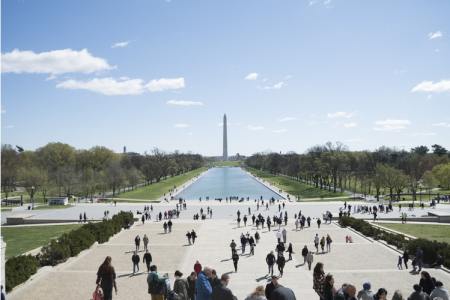4 things to know about the DC statehood debate

A bill to make Washington, D.C., the 51st state has been met with praise from Democrats and residents of the District but has received pushback from Republicans, who argue that the proposal runs afoul of the United States Constitution.
Sen. Tom Carper, D-Del., introduced "The Washington, D.C. Admission Act" last week. Carper argues that the legislation is necessary because “our nation’s capital is home to more than 700,000 Americans who, despite our nation’s founding mantra — ‘no taxation without representation’ — pay their share of taxes without full voting representation in either chamber of Congress.”
While the District of Columbia has three votes in the Electoral College, where each state has a number of electors equal to its number of senators and representatives, it does not have any voting member in Congress. Instead, the District, like the U.S. territories that have not been admitted to the Union as states, has a non-voting delegate in Congress. Democrat Eleanor Holmes Norton has served in that role since 1991.
The push for D.C. statehood has been embraced by Democrats on Capitol Hill while Republicans contend that the plan would violate the Constitution. One Republican has introduced an alternative proposal that would address Carper’s concerns about “taxation without representation” without adding a new state to the Union.
Here are four things to know about the debate over D.C. statehood.





















